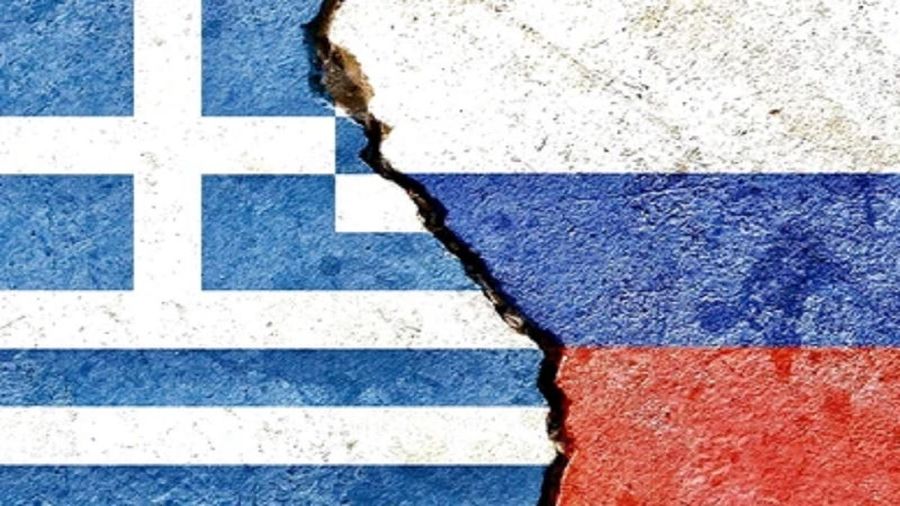Turkiye Turned Out to be a More Trustworthy Military Partner for Russia Than Greece
The lesson to be learned is that a shared vision over the future of the international system is much more important in determining the strength of bilateral relations than shared cultural and religious traditions, which explains why Greece and Turkiye switched places as Russia’s top regional partner.
Russian Foreign Ministry spokeswoman Maria Zakharova lambasted Greece after its leadership proposed sending S-300s to Ukraine in exchange for the US replacing them with Patriots. In her words, “That would be a gross violation of…Russian-Greek…agreements on military and technical cooperation.” Athens’ offer follows May’s ratification of the Greek-American Mutual Defense Cooperation Agreement that gave Washington access to three military bases, one of which now hosts MQ-9 Reaper drones.
The geostrategic situation in the Eastern Mediterranean has gradually changed as a result of Turkiye’s increasingly independent policies. Its maritime claims, naval buildup, energy corridor plans, and growing full-spectrum relations with Russia alarmed the US, which in turn decisively pivoted to supporting Greece in this traditional rivalry after largely backing Turkiye for decades. The emerging outcome is that Greece is becoming the US’ top regional proxy while Turkiye is turning into its top regional problem.
This development has major consequences for Russian foreign policy. Moscow had hitherto attempted to balance relations with its traditional partners in Athens and its newfound ones in Ankara, but Washington’s regional meddling spoiled its plans. Turkiye has now turned out to be a more trustworthy partner than Greece, including in the military sense. This is in spite of the first-mentioned being Russia’s historical rival while the second’s culture and religion played a major role in influencing Russia’s own.
What this goes to show is that the emotional element in some strategic partnerships isn’t sufficient for enduring their long-term viability in the face of the declining unipolar hegemon’s divide-and-rule meddling as the American-driven deterioration of Greek-Russian ties proves. Likewise, so-called “historical baggage” like that which has hitherto held Russian-Turkish ties back isn’t insurmountable and can be overcome so long as each party is truly sovereign and has the political will to improve ties.
The preceding observations about Russia’s evolving relations with Greece and Turkiye are especially intriguing because those two Eastern Mediterranean states are both NATO members. On the surface, neither of them should ever have had close ties with Russia to begin with, yet they each reached out to Moscow at different times – Athens prior to Ankara – in an attempt to balance/counteract Washington’s support for their rival. This suggests that the US’ intra-NATO divide-and-rule policy is counterproductive.
To explain, the US occasionally pivots when it comes to which country it supports in any given rivalry within its “sphere of influence”. In the Greek-Turkish one, it historically backed Ankara over Athens due to the first-mentioned being NATO’s Old Cold War-era cornerstone in West Asia. The USSR’s dissolution saw Greece reach out to Russia on the basis of their historical cultural and religious ties in an attempt to court Moscow’s military support for balancing/counteracting Washington’s own of Turkiye.
This successfully resulted in Athens obtaining the S-300s, and it subsequently appeared for a while to many observers that a Greek-Russian axis was emerging in the Eastern Mediterranean to counter the Turkish-US one, with the possibility emerging of these two de facto blocs duking it out over Cyprus. That scenario was offset in the middle of the last decade after Turkiye realized that the US was using it as a battering ram in Syria while simultaneously plotting to stab it in the back with a coup and PKK terrorism.
In response, President Erdogan doubled down on Turkiye’s pro-sovereignty trajectory at the expense of its nominal American ally’s regional hegemonic interests, which prompted the US to pivot to supporting Greece. The interconnected trends unleashed during that time resulted in the present state of affairs whereby Turkiye turned out to be a more trustworthy partner for Russia than Greece, including in the military sense, while Greece turned out to be a more trustworthy partner for the US than Turkiye.
Looking forward, these relationships will likely become the “new normal” of Eastern Mediterranean geopolitics as the global systemic transition to multipolarity accelerates at this stage of the New Cold War. The lesson to be learned is that a shared vision over the future of the international system is much more important in determining the strength of bilateral relations than shared cultural and religious traditions, which explains why Greece and Turkiye switched places as Russia’s top regional partner.







